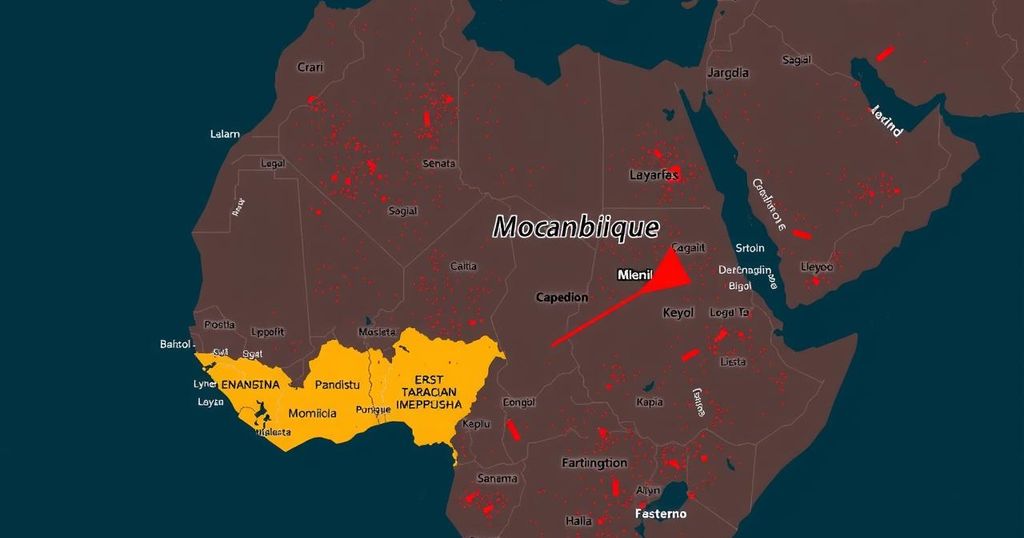The post-election violence in Mozambique following the Oct. 9 elections poses serious concerns for Southern Africa, with at least 30 casualties reported amid protests against the ruling Frelimo party. The unrest highlights critical issues of democratic integrity, regional economic disruption, and political instability, which are likely to be discussed at the upcoming Southern African Development Community summit. The interconnectedness of Southern African nations amplifies the implications of Mozambique’s crisis for regional security and trade.
Mozambique has recently experienced significant unrest following the Oct. 9 elections, where the ruling Frelimo party extended its 49-year governance. Protests erupted in response to the election results, which many, including opposition candidate Venancio Mondlane, have denounced as fraudulent. As violence escalates, the implications extend beyond Mozambique’s borders, raising concerns for Southern Africa due to the region’s interconnected politics and economy. The Southern African Development Community (SADC) summit will likely address these developments, as the unrest underscores broader issues of electoral integrity and democracy in the region. Southern African nations like South Africa, Botswana, and Mauritius have successfully conducted credible elections this year, highlighting a contrast where Mozambique has faced serious allegations of electoral misconduct. The European Union’s observers reported discrepancies in the election process, further intensifying calls for accountability. Furthermore, instability in Mozambique threatens regional economic dynamics, given its vital role in trade and transport networks. South Africa has already responded by temporarily closing its border with Mozambique, resulting in substantial economic losses. Coupled with Mozambique’s rich resources and burgeoning natural gas sector, the regional implications of this instability could resonate throughout Southern Africa, particularly affecting economies that rely on Mozambican trade. Political stability remains a crucial issue for Mozambique, which has not fully recovered from a brutal civil war and is currently combating escalating violence from an Islamic State-affiliated group in the north. Nearly 600,000 of the 1.3 million displaced individuals have returned, facing communities in ruins. Therefore, heightened political violence not only threatens Mozambique’s internal stability but could further exacerbate migration pressures in the region. In conclusion, the recent unrest in Mozambique is more than a national crisis; it has significant ramifications for Southern Africa’s democratic processes, economic conditions, and regional stability. As neighboring countries watch closely, the upcoming SADC summit will be pivotal in addressing these pressing issues.
The post-election violence in Mozambique stems from the recent electoral process that saw the long-ruling Frelimo party reaffirm its position, amid widespread claims of electoral fraud. The conflict has resulted in protests and violence, highlighting the fragile state of democracy in the country. The situation poses risks not only to Mozambique’s stability but to the broader Southern African region, which is navigating its own electoral dynamics and political changes. This interconnectedness accentuates the potential for instability to spill over into neighboring countries, complicating regional security and economic collaboration.
In summary, Mozambique’s post-election violence has raised serious concerns for Southern Africa, emphasizing the need for credible electoral practices and political stability. The unrest disrupts not only local governance but also threatens regional trade and economic cooperation. As Southern African countries strive for democratic integrity, the lessons learned from Mozambique’s turmoil could play a critical role in shaping future electoral frameworks across the region.
Original Source: apnews.com






